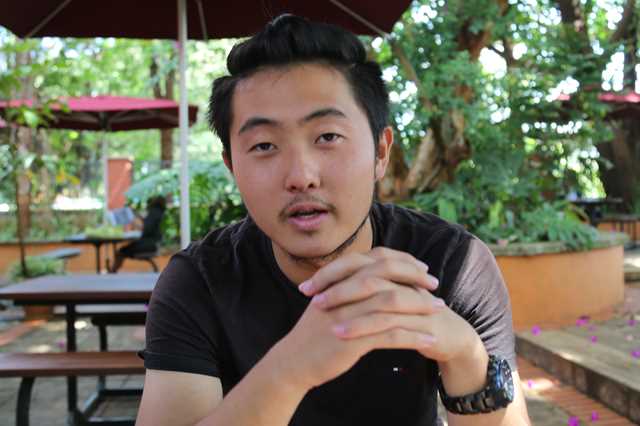Young Chinese provide free lunch for poverty-stricken Kenyan pupils
By Edith Mutethya | chinadaily.com.cn | Updated: 2019-01-17 15:15

The program's average daily budget for children is $0.3, with the financing coming from individual donors and Chinese organizations and foundations. The program has also registered its own foundation in America for funding from abroad.
According to Liu, the project has been welcomed by local communities and has contributed to a significant improvement in school enrollment and student health, with some school's registration figures increasing from 250 to 370-400 pupils.
The schools have also improved their teaching environment by increasing the number of teachers, and schools' performance has greatly improved.
"Most of the parents' monthly salaries range from Ksh2000 ($20) to Ksh6000 ($60), so relieving them of lunch costs has helped a lot. We have agreed with school administrations to retain school fees, because in addition to proving foodstuffs, we also cater for firewood, water, storage and dishwashing soap expenses," Liu says.
Liu, who holds a degree in Business Administration from United States International University-Africa, based in Nairobi, says they strictly monitor the program's operation and constantly evaluate it to ensure efficiency and effectiveness.
Free Lunch for Children International currently has a physical address in Kenya but plans are underway to establish branches in other African countries.
While Liu and Yin are the only staff in Kenya, they work with an online team based in China, US, Russia and Canada, who help with data analysis. This is in addition to a volunteer team who visit once or twice a year for site projects.
Head teacher of the Mathare Light Center Anjeline Atieno, one of the beneficiaries of the project, says the program has seen enrollment increase from 210 to 375.
The school's performance has additionally improved from a Kenya Certificate of Primary Education, meaning it scored a grade of below 200, to a 2018 grade of 260.
"Initially we had an organization that was providing us with foodstuffs for lunch but the supply wasn't enough, so parents were required to pay Ksh200 ($2) per month but most of them could not afford it. The children therefore had to go home for lunch, which was a waste of time and they would come back to school tired," she says.
She adds that the organization ended the program last year, further burdening parents and negatively affecting enrollment. Fortunately DBSA came in and could provide adequate foodstuff for pupils. The school can now look to a brighter future.
























